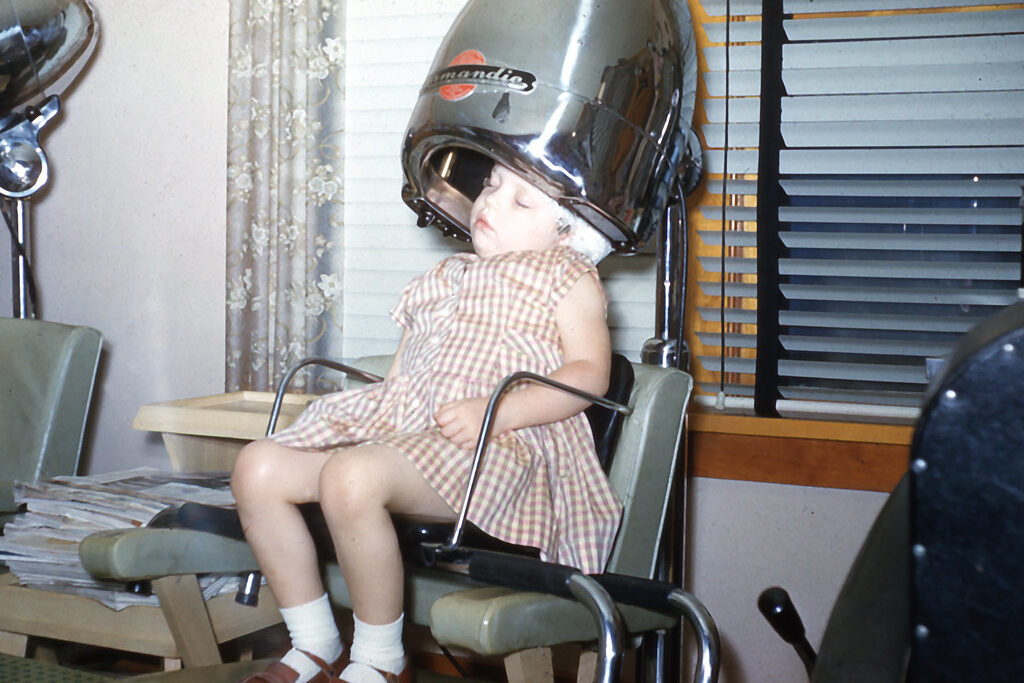1. Handling Fish Suspiciously

Here we go with one of the strangest laws still hanging around today and it starts with fish. In the United Kingdom, handling salmon in a way that looks suspicious is actually illegal. It sounds like a playful rule at first, but this law was created to reduce illegal fishing by stopping people from selling or transporting salmon without proof that it was caught legally. Authorities wanted to discourage hidden sales and shady fish deals, so the wording ended up being oddly specific. Imagine being questioned because you picked up a fish at the wrong moment. It is funny how serious laws can sound silly.
2. Alligator Parking Problems

In Louisiana, tying your alligator to a fire hydrant is considered unlawful. Even though most people do not casually walk around with an alligator on a leash, this law came from real concerns about keeping streets safe. Alligators used to be kept as backyard pets more often, and leaving one in public could cause panic or danger if it got loose. It almost feels unreal that a rule like this needed to exist, but it shows how law focuses on preventing problems before they happen. Today, it lives on as an amusing reminder of how local culture shaped legal decisions.
3. Garbage Feeding for Pigs

Arizona makes it illegal to feed garbage to pigs unless you get a permit. This rule may seem odd, but feeding pigs scraps without regulation can spread disease and contaminate farms. Long before modern health standards existed, cities tried to control outbreaks through rules on animal care. Requiring a permit allowed authorities to check what pig owners were feeding and how they disposed of food waste. When you think about it, the law was less about pigs and more about protecting communities from sickness. It is a little funny that something as simple as leftovers required official approval.
4. Pickles Must Bounce

Connecticut once decided that a pickle is not a real pickle unless it bounces. The idea sounds almost like a children’s game, but this rule was created to make sure pickles were properly fermented and safe to sell. Bouncing was a simple test for quality before modern equipment made inspections easier. It became a quick way for officials to spot spoiled products. The funny part is imagining someone tossing pickles to check their authenticity. Although nobody is bouncing pickles today at the grocery store, the concept serves as a reminder that lawmakers had to get creative when protecting consumers.
5. Donkeys Sleeping in Bathtubs

In Arizona, a donkey is not allowed to sleep in a bathtub. It seems humorous at first, but the rule traces back to a specific incident where a donkey sleeping in a ranch bathtub was swept away during a flood. The rescue process took so much effort and cost that lawmakers decided the situation should never happen again. The law may feel unnecessary now, but it was formed from a real problem someone faced. It shows how a random event can shape a long-standing rule. Today, the story lives on like a strange cautionary tale about unpredictable trouble.
6. Hair Dryer Nap Trouble

In Florida, a salon owner can be fined if a woman falls asleep under a hair dryer. It sounds overly personal, but this rule was made during a time when the machines were far hotter and riskier to use. Sleeping could lead to burns or overheating, so the law focused on safety before technology improved. It puts pressure on the salon more than the customer, holding them responsible for proper care. Even though modern dryers are safer, the rule remains a leftover reminder of old hazards. It makes you appreciate how everyday tools quietly evolve without us noticing.
7. Birds Have the Right of Way

Utah has a law saying birds have the right of way on highways. That might sound charming, but the intention was to protect valuable wildlife and encourage respect for nature. Cars were becoming more common and animal protection groups wanted rules that treated wildlife as something worth preserving. Instead of people speeding without awareness, the law pushed drivers to pay attention. Although a bird pause on a road is not a realistic traffic threat today, it brings a gentle reminder that every creature played a role in shaping local laws. It shows how humans once tried to coexist thoughtfully.
8. No Whistling Underwater

Oregon once declared that whistling underwater is illegal. While nobody can actually whistle underwater, the law likely went into books as a quirky ordinance meant to regulate behavior in public swimming areas. Perhaps it began as a joke or overreaction, but it stayed and became one of the funniest leftover rules. Odd laws like this reveal how local governments sometimes wrote restrictions without considering how strange they would look years later. It makes you wonder how many rules were written quickly just to solve a small problem. Laws can outgrow their purpose, leaving us amused and confused by them.
9. Mask Rules in Louisiana

In Louisiana, wearing masks in public is illegal in most situations, except during Mardi Gras when masks are actually required for people on parade floats. The rule comes from balancing safety with cultural tradition. Authorities wanted to discourage people from hiding identities for harmful reasons while also preserving the festive customs that make Mardi Gras unique. Instead of banning masks completely, they structured the rule around celebration. It is interesting how one event could influence state law so strongly. This rule shows how culture and legality can mix, leaving a piece of history written into everyday life.
10. Cooked Garbage Only

In Jefferson Parish, Louisiana, it is illegal to feed hogs garbage that has not been cooked. This law was passed to protect farms from illness outbreaks caused by spoiled waste and contaminated food scraps. Cooking destroyed bacteria and reduced the chances of disease spreading between animals. Although the words sound strange, especially imagining someone cooking trash for a pig, the law was built around public health concerns. When looked at closely, it reflects how early farming struggled without modern sanitation. What appears funny now was actually a serious attempt to keep communities safe through animal care.
11. No Slurping Soup

New Jersey once created a law that prohibited slurping soup in public. At face value, it feels almost too proper, like something out of a strict etiquette handbook. Before today’s relaxed norms, public manners were taken more seriously and noisy eating was seen as disruptive or rude. Authorities believed that maintaining order included regulating how people behaved while dining in public spaces. The law probably faded in enforcement as people became less formal. Now it serves as a reminder that societies once cared deeply about courteous conduct. What was once considered disorder now barely gets a second glance.
12. Elephants Cannot Plough Cotton Fields

North Carolina has a strange law that forbids elephants from ploughing cotton fields. Although it sounds silly today, this rule existed during a time when traveling circuses and exotic animal handlers used animals for labor. The state wanted to prevent damage to farmland and protect local agriculture from unpredictable practices. Elephants were simply too heavy and could destroy crops or soil. The rule was not about targeting circus animals but about keeping farming consistent and safe. Thinking about elephants doing farm work feels amusing now, yet it reflects how lawmakers responded to unusual situations they never expected.
13. No Nose Blowing in Public

In Waterville, Maine, blowing your nose in public was once prohibited. The idea might sound overly strict, but the rule came from health concerns before modern hygiene standards became common. Public gatherings made it easier for sickness to spread and authorities believed limiting certain habits would reduce illness. What seems normal today was once seen as unsanitary or disruptive. Rules like this came from a time when small actions could influence community health. While this law is rarely acknowledged today, it shows how ordinary habits were once considered serious enough to legislate. Times change, and so do priorities.
14. Honking for Horses

Kansas City once required drivers to honk their horns when entering town so horses would not get startled. Before cars were everywhere, streets were shared between early vehicles and horse drawn transport. The rule was meant to warn riders and protect animals from sudden noises that could cause dangerous reactions. It feels unusual today because horses are no longer common on highways. Still, the law remains a leftover from the changing period between old and new transportation. It captures how society struggled to adapt when new technology arrived. Even the smallest sounds needed rules to guide behavior.
15. Too Many Sheep in Hollywood

California once banned anyone from driving more than two thousand sheep down Hollywood Boulevard. This sounds unbelievable today, but Hollywood was not always crowded with cars and pedestrians. Livestock once shared space with the public and could create traffic blockages or sanitation issues. The rule tried to limit extreme herd movement for safety and cleanliness. Imagining thousands of sheep on a famous street feels comedic now, yet the law reveals how different city life used to be. As modern entertainment replaced farming activity, the law became irrelevant, but it never disappeared completely from legal history.
16. Lions Cannot Go to the Movies

In Baltimore, taking a lion to the movies was once prohibited. While most people would never consider bringing a lion anywhere public, exotic animals were more frequently owned by private individuals in earlier decades. The law was meant to protect moviegoers from unpredictable animals in crowded places. It may seem laughable, but it reflects how everyday environments lacked regulations for pets that were once legal to keep. The rule helped maintain public safety long before standardized animal control laws existed. Now it sits like a humorous reminder that life once allowed unusual pets in normal spaces.
17. Horse Racing Banned on Holy Days

Delaware prohibited horse racing on Good Friday and Easter Sunday. This law grew from community values rooted in religious observance and traditions that emphasized quiet reflection. Local culture influenced legislation to restrict entertainment on significant days. Although times have changed and many regions do not regulate holidays like this anymore, the law represents how society once tried to balance recreation with spiritual practices. Even if most people do not think about it today, it shows how social beliefs shaped the rules people lived by. What was normal then appears unusual now, but it marked cultural respect.
18. Soup Manners in Public

Some places once outlawed the slurping of soup because it was viewed as disruptive and disrespectful. This echoes earlier codes of conduct when public behavior was closely observed and even minor habits symbolized discipline or good upbringing. Officials believed that maintaining order was not only about safety but also about civility. As society became more diverse and informal, rules like this faded into obscurity. What was once treated as a public nuisance is now just an ordinary part of eating. It makes you see how human behavior changes and how rules often reflect expectations that eventually soften.
19. Permit for High Heels

In Carmel by the Sea, California, wearing high heeled shoes above a certain height once required a permit. This rule was not meant to limit fashion, but to prevent injuries from uneven sidewalks. City officials worried that people could fall and sue for damages, so the permit protected both walkers and the town. It shows how legal wording can make a practical solution sound amusing. Today the sidewalks are safer, yet the rule still lingers in memory. It is a playful example of how safety concerns shaped unusual legislation more than appearance or personal choice ever did.
20. Approved Baby Names

In Denmark, there is a long-standing rule that parents must choose a baby name from an approved government list, unless they apply for special permission. The law was created to protect children from names that could be considered offensive or misleading, but it also helps maintain cultural identity. More than a thousand names are allowed, yet parents who want something unusual must wait for approval. It may seem strict, but it still shows how laws often try to balance freedom with tradition. Rules like this remind us that even peculiar laws once made sense, quietly blending history with everyday life.
This story 20 Strange Laws That Still Exist and the Surprising Reasons Why was first published on Daily FETCH


